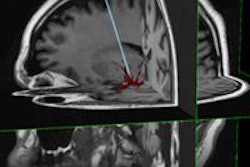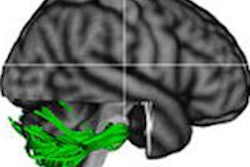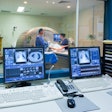Dear AuntMinnie Member,
A start-up firm called InseRT MRI is hoping to make MRI-guided surgical procedures easier to perform, and we're bringing you the company's story this week in our MRI Digital Community.
The firm has developed a software platform that makes it easier for users to customize MRI protocols for individual interventions. The goal is a real-time, interactive environment that enables surgeons to use MRI guidance without radically changing how they work.
InseRT MRI sees the first application for its platform in tracking drug delivery to the brain, with a second being robotic-controlled MRI-guided breast biopsies. Learn more about the company by clicking here, or visit the community at mri.auntminnie.com.
Wuebben on scanning in pain
Since echocardiographer Doug Wuebben and strength coach Mark Roozen began writing articles on scanning in pain for AuntMinnie.com in 2011, they have been flooded with stories from sonographers who are struggling with job-related injuries.
They share one such story in this week's edition of Making a Difference as a Sonographer, in which a sonographer from Australia describes how an interest in ultrasound early in her career eventually led to a vicious cycle that culminated in work-related injuries so severe that she was terminated by her employer.
Unfortunately, stories like this are all too common, and Mr. Wuebben and Mr. Roozen urge other sonographers to come forward with stories of their own. Read more by clicking here, or visit our Ultrasound Digital Community at ultrasound.auntminnie.com.
Health spending slows
In other news, a new report published this week by the U.S. Centers for Medicare and Medicaid Services (CMS) has found that healthcare spending grew at a relatively slow pace of 3.6% in 2013.
That's the good news. The bad news is that CMS expects health spending to resume its inexorable rise this year, ending a period of relatively modest growth that began with the Great Recession.
CMS actuaries believe that spending will be higher in coming years due to a variety of factors, ranging from the economic recovery to changes resulting from the Affordable Care Act. Read more by clicking here.


.fFmgij6Hin.png?auto=compress%2Cformat&fit=crop&h=100&q=70&w=100)





.fFmgij6Hin.png?auto=compress%2Cformat&fit=crop&h=167&q=70&w=250)











